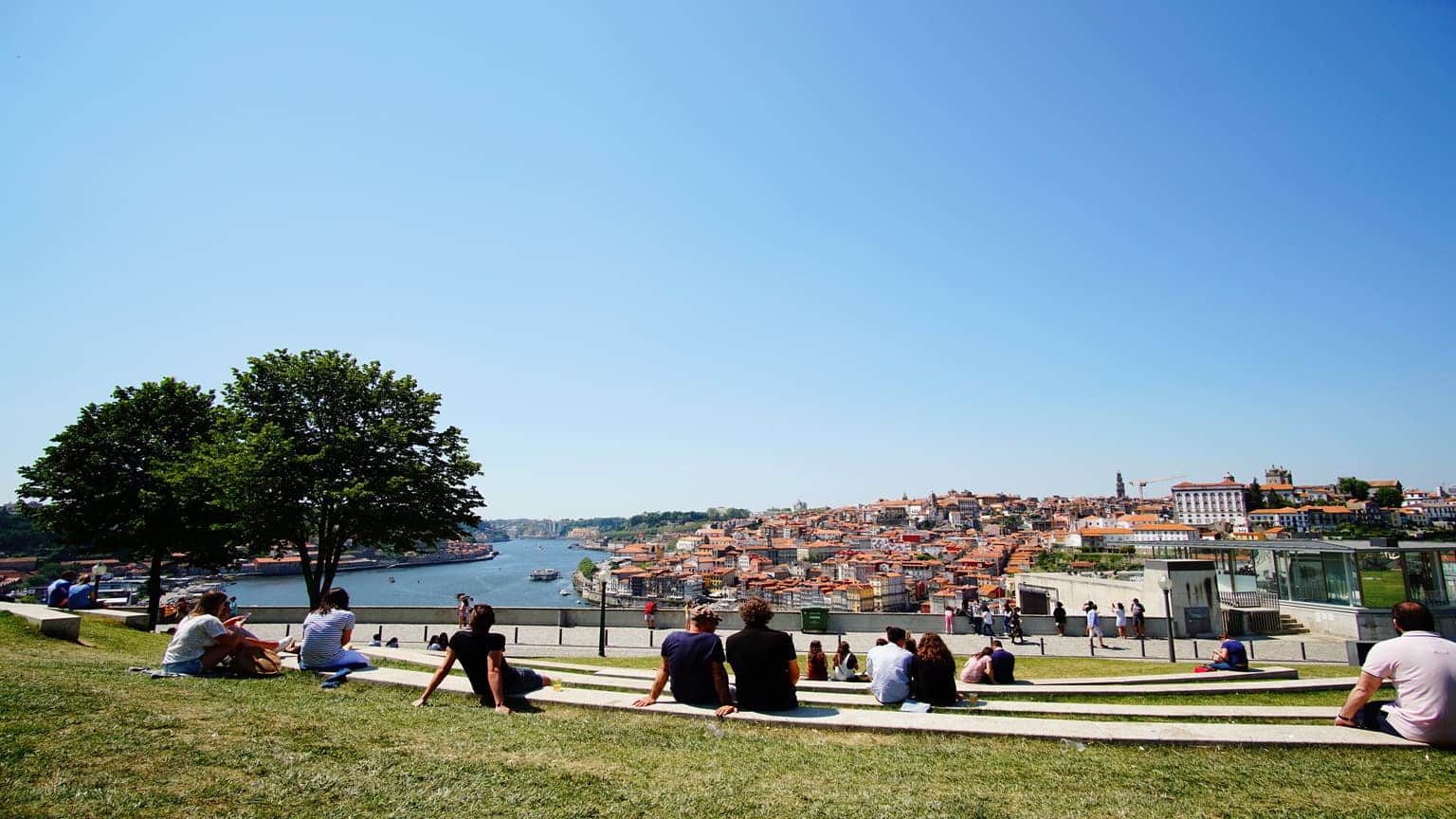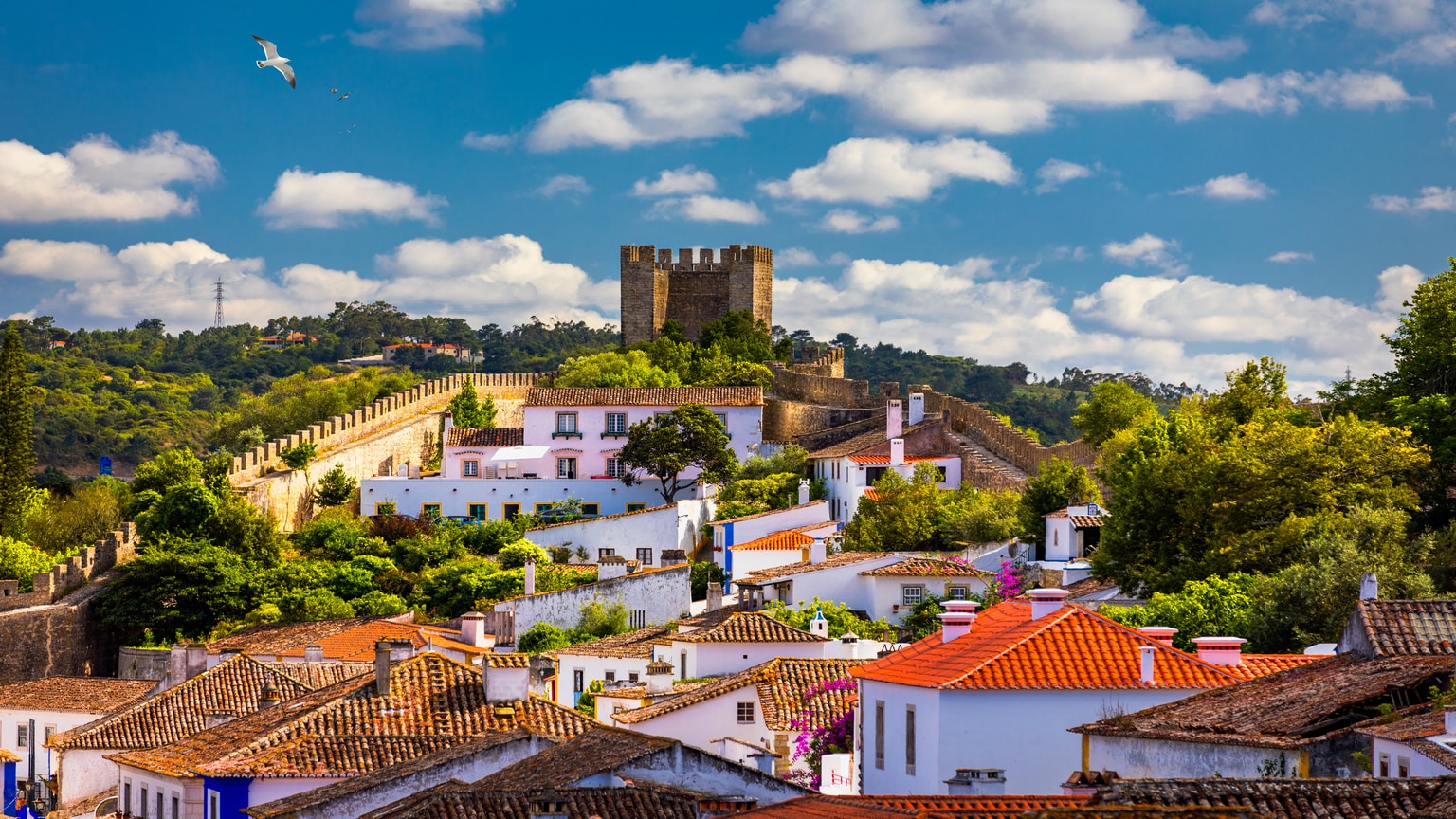Property taxes for Portugal residents and non‑residents
In Portugal, both individuals and legal entities are considered taxpayers. The status of a tax resident or non-resident influences tax rates.
When renting out a property, residents pay a progressive income tax of 14 to 48%, depending on their annual income. Non-residents are subject to a flat rate of 25%; the tax only applies to income derived within Portugal.
Individuals become Portuguese tax residents if they live in the country for 183 days or more per year. Residency change does not happen automatically; one must apply to the local tax authority and provide their registration address in Portugal.
Foreigners must also pay taxes when renting or purchasing property, even if they live in Portugal less than 183 days a year.
Renting or purchasing property in Portugal is one of the conditions for obtaining a residence permit with a D7 visa. The cost and location of the property are not specified. The applicant can choose any villa or apartment they like as long as it has adequate space for all the family members included in the application.
Candidates for the D7 visa prove a passive income of €9,120 per year to obtain residence permits. If relatives are included in the application, the minimum income amount is increased by 50% for a spouse or parent and 30% for each child.
New tax residents of Portugal can obtain a special tax status called Non-Habitual Resident (NHR) and save on property ownership expenses.
The tax year in Portugal runs from January 1st to December 31st. Tax returns are filed from April 1st to June 30th of the following year on the tax authority's website.
Taxes on property purchase and sale
Tax rates for property owners depend on the value and location of the real estate, as well as the owner’s status.
In the first quarter of 2023, the average cost of housing in Portugal is €2,481 per m2. In Lisbon, real estate prices are stable for now, while in Santarém and Braga, they have been growing.
Buying property for rental purposes is most profitable in the country’s inland regions, such as Sanrarém.
Taxes on property purchase. The municipal tax on property transfer is called Imposto Municipal sobre a Transmissão Onerosa de Imóveis (IMT). It ranges from 0 to 8%, depending on the property's value and type. The buyer pays the tax before signing the sales agreement.
If the property is located in rural areas, IMT is 5%. Commercial properties are subject to a 6.5% tax regardless of location.
Those who purchase buildings of national interest or shares of offshore companies that own real estate in Portugal are exempt from paying IMT.
A progressive tax scale is applied to residential properties in urban areas.
IMT rates in Portugal
| Real estate cost | Tax rate |
| Up to €97,064 | 0% |
| €97,064 to €132,774 | 2% |
| €132,774 to €181,034 | 5% |
| €181,034 to €301,688 | 7% |
| €301,688 to €578,598 | 8% |
| €578,598 to €1,050,400 | 6% |
| Over €1,050,400 | 7.5% |
The annual property tax is called the immovable property tax, or IMI (Imposto Municipal sobre Imóveis). The rate depends on the location of the real estate and ranges from 0.3 to 0.5% of the market value for urban properties and 0.8% for rural properties.
Real estate owners valued up to €125,000 are exempt from paying the tax if their annual income is less than €153,300. Additionally, owners of premises undergoing reconstruction funded by the municipal budget are exempt from IMI for 3—5 years.
When selling a property, the owner pays capital gains tax. If the seller is a resident of Portugal, they pay tax on only half of the profit from the transaction. Non-residents are charged tax on the full capital gain amount.
When residents sell their primary residence to purchase another property, they are exempt from capital gains tax. If the new property costs less than the sold one, the tax is applied to half of the difference in price.
Retirees and residents over 65 can invest the profit in a pension fund or an insurance company. However, this must be done within six months after the transaction.
Imposto de Selo, stamp duty is paid when purchasing, gifting, inheriting, or renting property and amounts to 0.8% of the transaction amount. Real estate purchase in the name of an organisation is not subject to stamp duty.
Examples of properties for sale in Portugal


Wealth tax in Portugal
Wealth tax is called Adicional Imposto Municipal sobre Imóveis (AIMI). It is applied to properties that cost more than €600,000. AIMI rate for individuals ranges from 0.7 to 1%, while legal entities pay 0.4%.
For properties above €1 million, individuals and organisations pay a flat rate of 1%. If spouses file a joint declaration, wealth tax is levied on properties valued above €1.2 million.
Wealth tax rates in Portugal
| Owner | Property value | Tax rate |
| Individuals | €600,000 to €1,000,000 €1,000,000 to €2,000,000 €2,000,000+ | 0.7% 1% 1.5% |
| Legal entity | €600,000 to €1,000,000 | 0.4% |
| Urban real estate owned by a resident company | — | 7.5% |
Taxes on inheritance and gift of real estate
For any property transfers, be it purchase, rent, gift, or inheritance, a stamp duty of 0.8% is charged.
The inheritance tax in Portugal was cancelled in 2004. If real estate is inherited by a spouse, children, parents, or grandchildren, the inheritor pays a stamp duty of 0.8%. In other cases, an additional stamp duty of 10% is applied. For instance, if someone inherits a house from a non-relative, the total stamp duty for them to pay will be 10.8%.
Gift tax is also not charged in Portugal. Similar to inheritance, before transferring property as a gift, the stamp duty of 0.8% or 10.8% must be paid, depending on the recipient’s relationship to the property's previous owner.
Property rent taxes in Portugal
In Portugal, properties are rented out with a contract. The document must be registered with the tax authority if the contract is signed for over one month. The owner pays a stamp duty of 10% of the rental amount.
Owners also pay taxes on their rental income. Non-residents are subject to a flat rate of 25%. Residents pay progressive income tax rates according to the applicable scale.
Rates for the rental income tax are the following for Portuguese residents:
- up to €7,091 — 14.5%;
- €7,091 to €10,700 — 23%;
- €10,700 to €20,261 — 28.5%;
- €20,261 to €25,000 — 35%;
- €25,000 to €36,856 — 37%;
- €36,856 to €80,640 — 45%;
- €80,640+ — 48%.
When calculating the income from rent, utility payments and repair expenses are deducted from the rental income, provided there are corresponding receipts.
Tenants do not pay taxes. Aside from the contractual payment, their additional expenses may include a security deposit equal to two months' rent.
To obtain residency in Portugal with a D7 visa, one needs to rent a place with a long-term agreement. There are no requirements regarding the price or location of the property.
In 2023, the rental yield from residential real estate in Portugal increased by 1% compared to last year and reached 6.6%.
The annual profitability from rent in Portugal by the city is the following:
- Santarém — 7.6%;
- Coimbra — 5.9%;
- Braga — 5.6%;
- Funchal — 5.2%;
- Setúbal — 5.1%;
- Porto — 4.7%;
- Aveiro — 4.3%;
- Lisbon — 3.8%.
Lisbon, Aveiro and Porto tend to be the least profitable in terms of rental properties. However, these regions have lower investment risks due to the high rental demand.

How to become a taxpayer in Portugal and get benefits
Foreign property owners in Portugal only apply for NIF, a tax identification number, through a tax representative. This rule applies to non-EU citizens.
A person with Portugal residency or citizenship can become a tax representative for a foreigner — this could be a lawyer, accountant, or a foreigner’s friend. The tax representative should be present when the foreigner submits their documents.
Documents required for obtaining a NIF in Portugal:
- Passport with a valid national or Schengen visa.
- Proof of having a registration address in Portugal, for instance, a utility payment receipt.
After obtaining a NIF, a foreigner does not become a tax resident by default. They start paying taxes in Portugal only when they:
- live in the country for at least 183 days per year;
- rent or own real estate and live in it, even if they don’t spend 183 days in Portugal.
Property owners can save on the tax payment if they become Non-Habitual residents. This status is available to new tax residents and is valid for 10 years. It allows paying a flat tax instead of a progressive one:
- 20% for highly qualified professionals whom a Portuguese company employs;
- 10% for retirees who get pensions from another country.
Foreigners with the NHR status do not pay dividends, royalties, capital gain, or rental income tax.
Other expenses for property maintenance in Portugal
The average monthly gas, water, and electricity expenses range from €80 to €180, depending on the chosen tariff and usage. Central heating is the most cost-effective way to heat a home, but it is primarily available in newer buildings.
Monthly Internet, television, and telephone prices depend on the region. The average cost of such services is around €40 per month. Apartment owners also pay for elevator service, cleaning, maintenance, security, and swimming pool from €50 to €250 per month, depending on the residential complex.
Aside from that, home insurance is required. The basic package costs from €180 to €380 and covers fire and flood risks.
Key takeaways on property taxes in Portugal
- Foreign property owners pay taxes in Portugal regardless of their tax status in the country.
- Purchase or renting of real estate is one of the conditions for obtaining a residency permit in Portugal with a D7 visa.
- During real estate transactions, two taxes are charged: the property transfer tax and the stamp duty. The property transfer tax is calculated based on the property's value and typically ranges from 5 to 10%. The stamp duty is a flat rate of 0.8%.
- Rental yields are subject to income tax. For tax residents, it is calculated based on a progressive scale ranging from 14.5 to 45%. Non-residents pay a flat rate of 25%.
- In Portugal, foreign property owners who use their real estate as their permanent residence in the country become tax residents. This means they are subject to Portugal's applicable tax regulations and obligations. This includes reporting their worldwide income and complying with the Portuguese tax system.
Frequently asked questions
The property transfer tax ranges from 0 to 8% of the transaction value, depending on the specific circumstances and type of real estate.
The annual municipal property tax (IMI) is charged at a rate ranging from 0.3 to 0.5% for urban properties and 0.8% for rural properties. Additionally, stamp duty is paid during any property transaction or transfer, amounting to 0.8% or 10% of the transaction value, depending on the nature of the transaction.
Portugal does not charge gift or inheritance taxes. The gift tax was cancelled in Portugal in 2004. If a property is inherited by a spouse, children, grandchildren, or the previous owner’s parents, they pay a 0.8% stamp duty. In other cases, an additional 10% stamp duty is charged. For instance, if a non-relative inherits property, they pay 10.8%.
To become a taxpayer in Portugal, one must obtain a NIF, a taxpayer number. Foreign property owners can apply for a NIF only through a tax representative.
A tax representative is a person who has a residency permit or citizenship in Portugal. This could be a lawyer, an accountant, or the property owner’s friend.
Yes, they can do so by obtaining a Non-Habitual Resident status (NHR). NHR is valid for 10 years. Foreigners with the NHR status don’t pay taxes on global income in Portugal or taxes for dividends, royalties, capital gain, and rental income.








